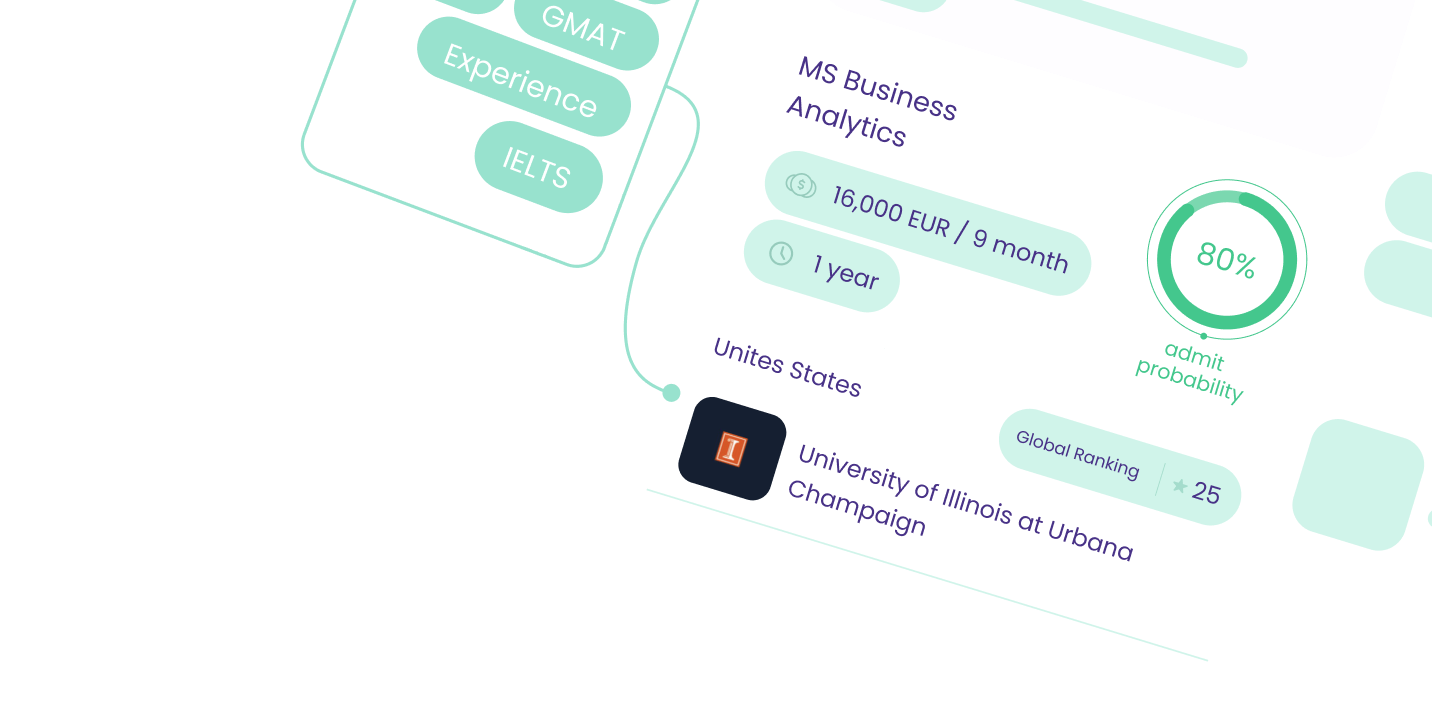Diploma in Computer Application or DCA is a one year program to study computer application in-depth, it provides students with practical and scientific knowledge on the Computer course along with major soft skills.
There are various career opportunities for those students who are aspiring for the IT sector and other IT related field jobs, and computer application fulfills those ambitions as it is on high demand in the market. The course will provide learners with the usage of applications and the ease of it accordingly.
About Diploma in Computer Application (DCA)
The diploma in Computer Application (DCA) is a year course program in computer application and students try to pursue courses that are in high demand in the market. There are several career and job opportunities through this diploma course. Students can pursue this computer application course, after completing 10 + 2 and post-graduation.
Various skills are inculcated in the computer programmer through DCA and enhance their thinking ability are:
- Students will get exposure to the IT sector through a computer application.
- The duration of the diploma course is about a year, fulfilling all the needs of a knowledgeable programmer.
- Concepts are being cleared in depth by the faculty of a particular institution.
- Everyone is eligible for this course as there are no certain eligibility criteria.
Read More: Computer Application Courses List
Diploma in Computer Application (DCA) Highlights
The Basic Highlights for Diploma in Computer Application are:
| Course Level | Graduate |
| Duration | 6-12 months |
| Examination Type | Yearly System |
| Eligibility | 10+2 from a recognized University |
| Admission Process | Direct admission to colleges. |
| Course Fee | INR 5,000 – 20,000 |
| Average Starting Salary | INR 2-5 Lacs |
| Top Recruiting Areas’ | Accounting, Database Handling, Basic Computer Applications among many others. |
| Top Job Profiles | Computer Operator, Web Designer, Accountant, Software Developer, C++ Developer, etc. |

DCA Course Fee
The fee structure of the Computer Application course is slightly different in different universities and colleges. There are several Indian institutes which provides computer courses as their diploma course and degree course according to the students need of duration.
Diploma course in computer application fees varies from private to government institutes worldwide.
Top Universities Offering Diploma in Computer Application (DCA)
Here is the list of Top Universities offering Diploma in Computer Application:
- Lovely Professional University
- Maharishi Dayanand University
- University of Madras
- Alagappa University
- University of Calcutta
- Savitribai Phule Pune University
- Kalinga Institute of Industrial Technology
- Panjab University
- Jadavpur University
- Jamia Millia Islamia
- Aligarh Muslim University
- Gujarat Technological University
- University of Allahabad
- University of Mumbai
- Amity University
- Banaras Hindu University
- Barkatullah University
Courses in Diploma in Computer Application (DCA)
Several models are available for students of diploma in computer application, few of them are mentioned below with the fundamental aspects of the course and the need for it.
Programming, IT systems and networking are the most important types of computer courses.
Some other important courses under DCA are:
- Web designing
- Software technologies
- Operating systems and data structures
- Database management and computer languages
- Software Hacking & IT security
- PC Assembly and Troubleshooting
- Software Engineering
Read More: Best Computer Courses
DCA Course Details
The Diploma in Computer Course is a graduate-level course that has a duration of 6 months to a year. The Computer course examination is held based on the student’s yearly performance in academics and practicals.
Direct admissions are available for every student with a certain age group which qualifies the colleges and universities criteria.
- The course fee varies according to the institutes, an average fee of the course is approximately 20,000-35000 in Indian rupees.
- It’s a year course or two-semester course mentioned according to the institutes
- After graduating the salary scope is quite high, ranges between 2-3 lakhs.
- The top fields of the course are data handling, web designing, program developer, etc.
Read More: Core Subjects in B.Com computers
DCA Course Material
Most of the DCA course materials are provided to the students by the faculty and college websites itself. There are some more books and online reading materials which are provided through various educational links and sites.
- Programming languages and their course books are available in the institution’s library for Java, Python, and C++, etc.
- IT and Networking textbooks contain parts of several chapters and it is generally provided by the teacher and colleagues of the batch itself.
- Web designing materials are available online with explanatory concepts etc.
- Some of the textbooks are Barron’s AP Computer Science, Cracking and Coding, IT developers also use C++ for advanced learners, Computer language through Python, Networking textbooks of Pearson.
- Several introductory books contain basics of the computer language concepts and the benefit of learning them.
Read More: Diploma in computer science engineering
DCA – Syllabus
DCA stands for Diploma in Computer Applications. This is a 1year diploma program in the field of Computer Applications. This includes the study of various computer applications such as Internet Applications, Database Management System, MS Office, Operating System, HTML, among others. The aim is to make the student’s technology-friendly by teaching them the above applications. The fee ranges from Rs 5,000 to Rs 30,000. In order to pursue this program, the student is required to pass the 12th-grade exam from a recognized school/college.
The syllabus for the semester 1 is as follows –
- Computer Fundamentals and Windows
- Representation of data/information concepts of data processing
- Introduction to Windows
- Windows Setting
- Window/Accessories
- Opening documents and closing documents
- Formatting the Text
- Handling Multiple documents
- Special Features
- Mail Merge
The subjects in the semester 1 are as follows –
- Fundamentals of Computer – The Units include Introduction to Computer, Storage Devices, and Computer Software.
- Operating System and Application Program – The Units include Disk Operating System, Windows, Linux, and MS Office.
- Programming Language – The Units include C Language Introduction, Decision and Control Structure, and Arrays and Functions.
- Practical on C Programming and Application Program – The student will be required to present a small program with the help of C Programming. The student will be evaluated on the basis of a practical presentation on the Computer, viva, and written program.
- Practical on Application Program – The student will be required to present a small program with the help of Application Program. The student will be evaluated on the basis of practical presentation on the Computer, viva and written program.
The syllabus for semester II is as follows –
- Spread Sheet
- Manipulation of cells
- Manipulation of sheets
- Providing Formulas and Functions
- Filters – AutoFilter, Advanced filters
- Powerpoint – making small presentations
- Computer Communication and Internet
- WWW and Web Browsers
- Basic of Electronic mail
- Document Handling
The subjects in semester II are as follows –
- Database Management System – The Units include Data Management System, Data Base Tables, Query Basics and SQL and Report.
- Visual Basics (VB) – The Units include Introduction to Visual Basics Control, Data Types, VB Function and Sub Routine and Connectivity with Data Base and Report.
- Internet and Web Page Designing – The Units include Internet, World Wide Web (WWW), Web Publishing and HTML.
- Project Work – the student will have to submit a project with the help of applications such as HTML, C Language, Visual Basic and DBMS.
DCA – Books
The reference books for semester I are as follows –
- Sinha, P.K. (2007). Computer Fundamentals. New Delhi: BPB Publications.
- Mukhi, Vijay (2008). Working with UNIX. New Delhi: BPB Publications.
- Rajaraman, V. (2014). Fundamental of Computer. New Delhi: Prentice Hall India Pvt. Ltd.
- Rajoriya, Sheetanshu (2013). Computer Fundamentals. Indore: Kamal Prakashan.
- Mansoor, A. I.T. Tools and Appliactions, Matura: Pragya Publications.
- Norton, Peter (2000). Peter Norton Complete Guide to Linux. New Delhi: Techmedia Publications.
- Dubey, Manoj (2013). P.C Packages. Indore: Kamal Prakashan.
- Balaguruswami, E. (2008). Programming with C. New Delhi: Tata McGraw Hill.
- Kernighan, Brian W. & Ritchie, Dennis M. (1988). The C Programming Language ANSI C. Prentice Hall PTR.
- Singh, Minakshi & Singh, VishnuPriya. C Programming. Delhi: Asian Publisher.
- Jain, Abhinav. The Ocean of C. Indore: Nakoda Publishers & Printers. (7th Edition).
The reference books for semester II are as follows –
- Microsoft Access 2013 by Joyce Cox and Joan Lambert Published by Microsoft Press.
- Bayross, Ivan. Mastering Database Technologies. New Delhi: BPB Publications.
- Majumdar, Arun K & Bhattacharya, P. (2008). Database Management System. New Delhi: Tata McGraw Hills Publishing Company Limited.
- Maheshwari, Sharad & Jain, S. (2007). Database Management System. New Delhi: Firewall Media.
- Bansal, V & Bhatia, A.B. (2015). Database Management System. New Delhi: Narosa Publishing House.
- Sillberschatz, A., Korth, H.F & Sudarshan, S. (2006). Database System Concepts., New Delhi: McGraw Hill.
- Jerke, Noel, (1998). Visual Basic 6.0 The Complete Reference. New Delhi: Tata McGraw Hill Publishing Company Limited.
- Smilly, John (2001). Visual Basic Database. New Delhi: Firewall Media.
- Mauer, Lowell. Visual Basic 6.0 (Hindi). New Delhi: BPB Publisher
- Naik, Nitin K. (2013). Basic of Visual Basic. Indore: Kamal Prakashan.
- Pawel, Thomas A (2010). HTML Complete Reference. New Delhi: Tata McGraw Hill.
- BPB. Web & Graphics. New Delhi: BPB Publisher.
- Singh, Minakshi & Singh, VishnuPriya. Web Designing Course. Delhi: Asian Publisher.
- Naik, Nitin K. (2014). Internet Web Technology E-Commerce. Indore: Kamal Prakashan.
The DCA books are as follows –
- Diploma in Computer Application – Madhur Kumar Telang
- Introduction to Computer and Programming using Python – John.V.Guttag
- Comprehensive Computer Learning – B.Kumar
- Java the Complete Reference – Herbert Schildt
- Operating System – Dr. Mohamed Rafi Mr. Vikram Sindhu.S.
https://collegedunia.com/courses/diploma-in-computer-application-dca/syllabus
Job Opportunities After DCA
Students can go into various fields after studying Diploma in Computer Application (DCA), as it is a Diploma course, it helps to increase the knowledge of a student which is useful in various fields
The Job Opportunities after Diploma in Computer Application (DCA) are:
- Networking & Internetworking field
- Database Development & Administration field
- Programming – Development tools, languages
- Technical writing
- Software design & engineering
- Graphic design and animation
- Web/ e-commerce development
Most popular career options for students after completing Diploma (DCA) are:
- Computer Operator
- Web Designer
- Accountant
- Software Developer
- C++ developer
Salary Offered After Diploma in Computer Application (DCA)
There is good salary earning options after doing a Diploma in Computer Application (DCA), but the salary may vary according to the course you pursue. Some of the most popular jobs with their average salary are mentioned below.
Various organizations pay an average salary of 2.5-3 lakhs per annum to good profile handlers and with required skills.
- Language developer(C++/Pyhton), the average salary is about 3-4 lakhs per annum.
- The software developer has an annual salary of 3.5-4.5 lakhs per annum with technical pieces of equipment and other facilities available.
- Web designing gets an average salary of 3-5 lakhs per annum depending upon the work assigned to the designer.
- Graphic designing and animation, this field holds a salary of 5-6 lakhs per annum due to the need for it in the market.
- The technical developer has a lesser amount of annual salary than those of the fields mentioned above, it is of 2-3 lakhs per annum.
- Administrative management requires a patient personality and the salary is granted of about 3 lakhs per annum to the employees.
Read More: MS in Computer Science in the USA
DCA Certificate
The DCA course provides students with a certificate that holds the grades in the computer application field and is provided to benefit the students in getting a job with a perfect profile presentability.
DCA courses can be pursued after senior secondary education as well as post-graduation. This flexible course will provide an individual with a steady living.
Diploma in Computer Application (DCA) Distance Education
Students can apply for a Diploma in Computer Application (DCA) universities abroad by sitting in their home country. This will definitely provide opportunities for distance education students.
They will have the flexibility of time, more focus on the students, more understandability amongst the teacher and students, effective interactions, daily learning as well as weekly according to the student’s choice.
- For distance learners fee is lesser in comparison with on-campus diploma pursuers, it ranges from INR 10000- 15000 for a year.
- The syllabus details and other admitted information is provided through the mail and on the official website.
- It’s not an easy task to learn through distance education as there are times and other factors that hinder students’ knowledge of understanding the concepts.
- It also helps students to learn independent of time and traveling, these factors will hinder the learner and will result in the best outcome.



FAQs
Ans. A diploma in computer applications is a good option for saving time and getting a steady job after graduating.
Ans. The course details are listed on the website of the institution with the date of submission of the documents.
Ans. There are several career scopes like software developers, programmers, web designers, animators, graphic designers, etc.
Ans. Diploma courses generally have less fee than a degree course and for computer applications, the fee is quite reasonable and affordable.
Ans. The course has a duration of 6 months to one year depending upon the student’s need to gain extra knowledge.
Ans. After graduating from this course there are various organizations available such as web designer, software developer, C++ developer, accountant, etc.






Comments (0)